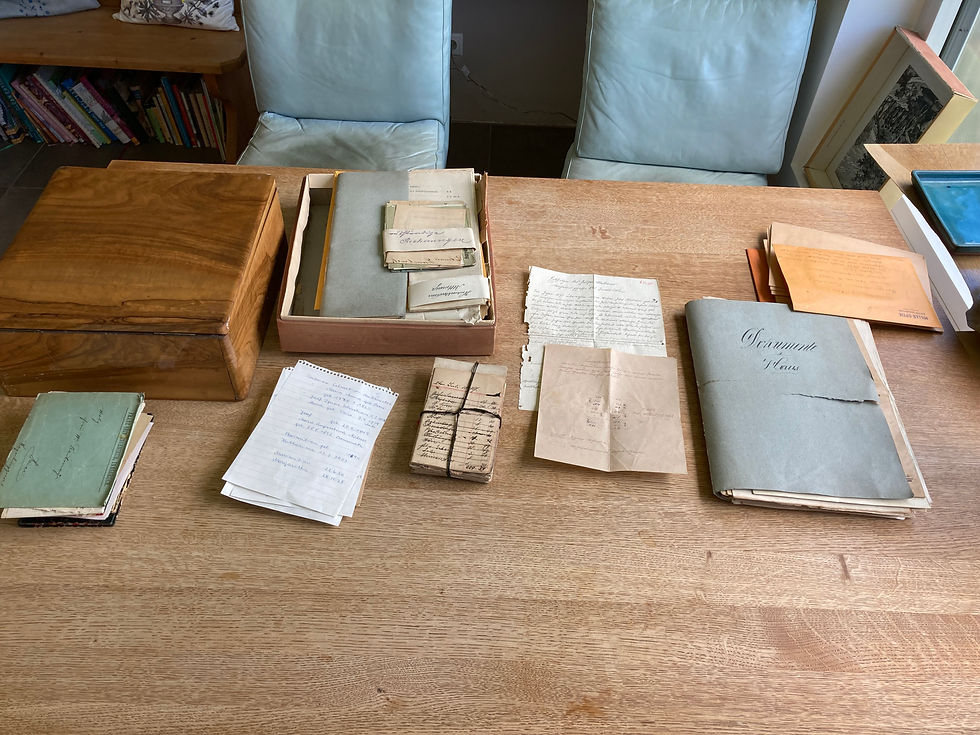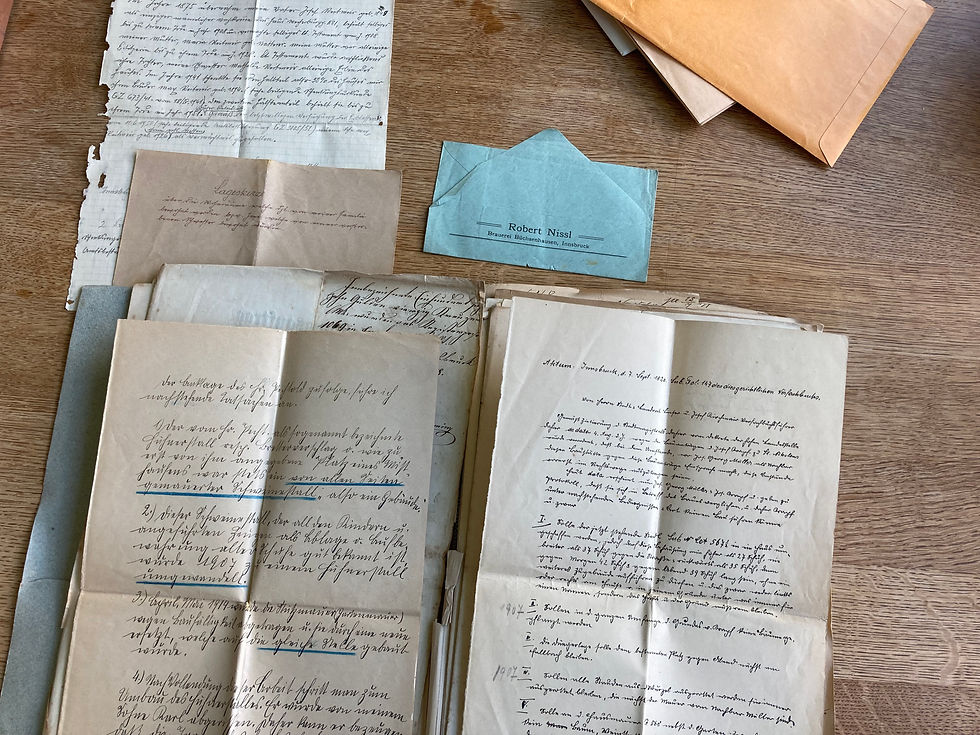10 the box
- JJ
- 1. Aug. 2022
- 2 Min. Lesezeit
Aktualisiert: 26. Aug. 2022
Today I left at 5:30 in the morning from Vinschgau/ South Tyrol to Innsbruck. There I first walked to St Nikolaus to the parish office and stood in front of closed doors - holiday time. I won't give up and will try again next time I'm there. In the meantime I got a hint from the diocesan archivist that the plays might have been hidden in the parish archives of St Nikolaus among the church music scores of that time.
After a coffee at the Hotel Engel, I go to the appointment with the descendant of Anna Pritzi, M. Reitmeir. The door opens and three young men stand before me. They are all enthusiastic about the story of the ancestor and theatre maker Anna Pritzi and hope we will find something. M. fetches a large box from the cellar where the documents from the 19th century are kept. The excitement builds and the four of us go through the documents. It's really great what's been kept there. Documents about the house, wills, promissory notes, account books, ... but unfortunately nothing about the theatre work of Anna Reithmayr née Brixin. What a disappointment. M. wants to ask around among his relatives. We are surprised that the theatre of Anna Pritzi has not been passed down in the family at all. M. himself has never heard anyone in the family talk about it.
M.'s documents show that the house at Weiherburggasse 1 was bought by Sebastian Reitmayr in 1844 for 3600 fl. Son Josef Sebastian or father Sebastian? The publication of the city archives shows that Sebastian Reitmayr had his shoemaker's trade in Mühlau until 1819 and from 1823 a „Gerechtsame“ in Innsbruck.
Place, time, space, person - everything is correct. But why are there no direct references to Pritzi's theatre beyond the travelogues of the 19th century literati?
I'm beginning to wonder if it's possible that all the literary Tyrol travellers copied from each other for their travelogues and August Lewald simply credited Anna Pritzi with the theatre to be as cool as Karl Immermann. I would so love to find an announcement in a newspaper or a playbill or at least an oral tradition by her descendants, if not a play.
Somehow, however, this uncertainty is also worth telling.




